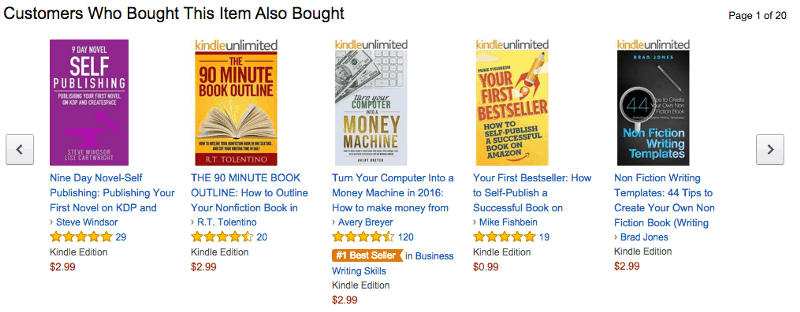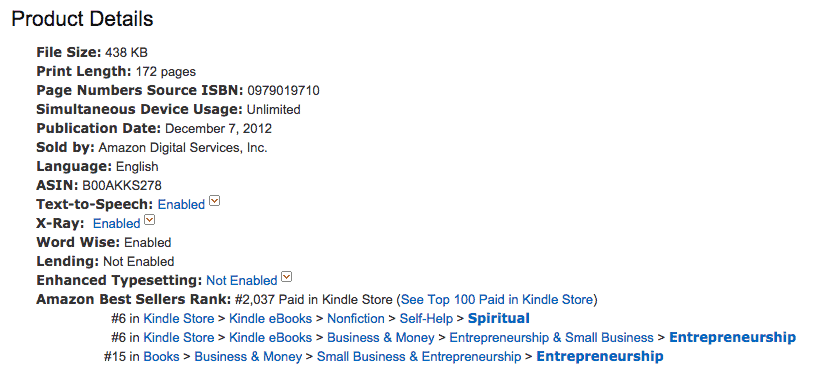If you are looking for a way to market yourself and make money, writing a book might be the perfect solution. But where do you start? Well, the first step is to determine your goals for writing the book. Are you looking to establish yourself as an expert in your field, or are you simply wanting to share your story or knowledge? Once you have a clear vision, it’s important to know your target audience and pick a topic that is in demand but not overly competitive. From there, you’ll want to create a system for writing consistently, edit and proofread your book, and produce it with an attention-grabbing title, description, and cover design. Finally, self-publish your book on platforms like Kindle, paperback, and audiobook, and don’t forget to market your book through book promotion sites and building an email list. Writing a book can truly be the key to marketing yourself and making money.
Determining Your Goals

Identify your reasons for writing a book
So, you’ve decided to write a book. That’s fantastic! But before you dive headfirst into the writing process, it’s important to take a step back and identify your reasons for writing a book. Are you looking to market yourself as an expert in your field? Are you hoping to share your knowledge and experiences with others? Or perhaps you’re simply driven by the desire to create something meaningful.
Whatever your reasons may be, understanding them will give you a clear sense of purpose and help guide you throughout the writing process. It will also serve as a source of motivation whenever you encounter challenges along the way.
Set specific goals for your book
Now that you’ve identified your reasons for writing a book, it’s time to set specific goals for your project. What do you hope to achieve by writing this book? Do you want to sell a certain number of copies? Gain recognition as an author? Establish yourself as an authority in your niche?
Setting specific goals will not only give you something to strive for, but it will also help you stay focused and maintain momentum throughout the entire process. These goals should be realistic and attainable, but also challenging enough to push you out of your comfort zone.
Knowing Your Target Audience
Research your target audience
When it comes to writing a book, it’s crucial to know who your target audience is. These are the people who will be reading your book, so understanding their demographics, preferences, and behaviors is essential to crafting a book that truly resonates with them.
Take the time to conduct thorough research on your target audience. This can involve analyzing market data, conducting surveys or interviews, and even observing online communities or forums where your readers may gather. The more you know about your audience, the better equipped you’ll be to meet their needs and interests.
Understand their needs and interests
Once you’ve identified your target audience, it’s important to understand their needs and interests. What are they looking for in a book? What topics are they most interested in? What problems or challenges do they need help solving?
Understanding these aspects will allow you to tailor your book to their expectations. By addressing their needs and catering to their interests, you’ll be able to create a book that not only captures their attention but also provides them with value.
Tailor your book to meet their expectations
Now that you have a clear understanding of your target audience’s needs and interests, it’s time to tailor your book to meet their expectations. This involves choosing a topic that resonates with them, adopting a writing style that appeals to them, and structuring your book in a way that is easy for them to consume.
By aligning your book with your target audience’s expectations, you’ll be able to create a reading experience that they will find enjoyable and valuable. This, in turn, will increase the likelihood of them recommending your book to others and becoming loyal fans of your work.
Choosing the Right Topic
Identify trending subjects
When it comes to choosing a topic for your book, it’s important to strike a balance between relevance and longevity. Identifying trending subjects can give your book a competitive edge and ensure that it remains relevant in the current market.
Stay up to date with current events, industry trends, and popular culture to identify topics that are currently in demand. This can involve reading industry publications, monitoring social media trends, or even conducting keyword research to see what people are searching for online.
Explore niche topics
While it’s important to consider trending subjects, it’s equally important to explore niche topics that have the potential to capture a smaller but highly engaged audience. These niche topics may not have as much competition, allowing your book to stand out in the market.
Think about your own interests, experiences, or areas of expertise that may fall within a specific niche. By focusing on a niche topic, you can cater to a dedicated group of readers who are passionate about that subject matter.
Evaluate the competition
Before finalizing your topic, it’s important to evaluate the competition in the market. Look at books that cover similar topics and analyze their success and reception. This will give you an idea of the demand for your chosen topic and help you identify gaps or opportunities that you can leverage.
Keep in mind that competition is not necessarily a bad thing. It indicates that there is a demand for books on that topic. However, if the market is oversaturated with similar books, it may be harder for your book to stand out.

Strike a balance between demand and competition
When choosing the right topic for your book, it’s crucial to strike a balance between demand and competition. You want a topic that has enough demand to generate interest and sales, but not so much competition that your book gets lost in the sea of similar titles.
By identifying trending subjects, exploring niche topics, and evaluating the competition, you can find that sweet spot that allows your book to thrive in the market.
Establishing a Writing System
Create a writing schedule
Writing a book requires consistency and discipline. To ensure that you make progress on your book, it’s important to create a writing schedule. This involves setting aside dedicated time each day or week to work on your manuscript.
Consider your personal preferences and commitments when creating your writing schedule. Some people prefer to write early in the morning when their mind is fresh, while others find that they are more productive during the evening. Choose a time that works best for you and stick to it.
Set specific writing goals
In addition to a writing schedule, it’s also important to set specific writing goals. These goals can be based on word count, chapters completed, or even specific milestones within your book.
Setting goals gives you something concrete to work towards and helps you stay motivated. Start by setting small, attainable goals and gradually increase them as you gain momentum and confidence in your writing abilities.
Break down the writing process into manageable tasks
Writing a book can feel overwhelming, especially when you’re faced with the prospect of producing tens of thousands of words. To make the process more manageable, it’s helpful to break it down into smaller tasks.
Start by outlining your book and breaking it down into chapters or sections. Then, break each chapter or section down into smaller tasks or subtopics. By tackling these smaller tasks one at a time, you’ll be able to make progress without feeling overwhelmed.

Find the right writing environment
Creating the right writing environment is crucial to your productivity and focus. Choose a space that is free from distractions and allows you to concentrate fully on your writing. This could be a quiet corner of your home, a local library, or even a cozy cafe.
Experiment with different environments and find the one that helps you get into the writing zone. Some writers prefer complete silence, while others thrive with background noise. Explore what works best for you and create a space that inspires creativity and focus.
Eliminate distractions while writing
Writing requires concentration and focus, so it’s important to eliminate distractions as much as possible. Turn off notifications on your phone, close unnecessary tabs on your computer, and let family members or roommates know that you need uninterrupted time.
Consider using productivity apps or website blockers to prevent yourself from getting distracted by social media or other online temptations. By creating a distraction-free environment, you’ll be able to devote your full attention to your writing and make the most of your designated writing time.
Editing and Proofreading
Revise and refine your manuscript
Once you’ve completed the first draft of your manuscript, it’s time to shift gears and focus on editing and refining your work. This is a crucial step in the writing process as it allows you to polish your prose, improve the flow of your narrative, and fix any inconsistencies or errors.
Read through your manuscript with a critical eye, looking for areas that can be improved. Consider the overall structure, character development, pacing, and clarity of your writing. Make notes and revisions as needed, keeping in mind the expectations and preferences of your target audience.
Hire a professional editor if necessary
Editing your own work can be challenging as it’s easy to overlook errors or become attached to certain passages. Consider hiring a professional editor to provide a fresh pair of eyes and offer objective feedback on your manuscript.
A professional editor can help identify areas that need improvement, provide suggestions for restructuring or rewriting, and ensure that your book meets industry standards. While it may be an additional expense, the investment in professional editing can greatly enhance the quality of your book.

Proofread for grammar, spelling, and punctuation errors
In addition to editing, it’s crucial to thoroughly proofread your manuscript for grammar, spelling, and punctuation errors. These seemingly small mistakes can significantly impact the readability and credibility of your book.
Read through your manuscript carefully or consider enlisting the help of a proofreader. Look out for common errors such as typos, subject-verb agreement, or misplaced punctuation marks. Pay attention to details and ensure that your writing is clear, concise, and error-free.
Ensure a coherent and well-structured narrative
As you review your manuscript, pay close attention to the overall coherence and structure of your narrative. Ensure that your ideas flow smoothly and logically from one chapter to the next. Check for inconsistencies in tone, voice, or character development.
Consider seeking feedback from beta readers or fellow writers who can provide objective insights into the strengths and weaknesses of your narrative. This will help you identify areas where further revisions may be necessary and ensure that your book offers a cohesive reading experience.
Producing Your Book
Choose an attention-grabbing title
Your book’s title is the first thing that potential readers will see, so it’s important to choose one that grabs their attention and piques their curiosity. Your title should reflect the essence of your book and entice readers to pick it up and learn more.
Consider brainstorming several title options and gathering feedback from trusted friends or fellow writers. Experiment with different combinations of words, imagery, and emotions. Don’t be afraid to take risks and be creative with your title to make it stand out in a crowded market.
Craft a compelling book description
Once you’ve caught a reader’s attention with your title, you’ll need to pull them in further with a compelling book description. Your book’s description should provide a concise yet enticing summary of what readers can expect from your book.
Highlight the key themes, unique selling points, and benefits that your book offers. Keep in mind your target audience’s needs and interests, and tailor your description to resonate with them. Make use of vivid language, powerful storytelling, and compelling hooks to captivate potential readers.

Design an eye-catching cover
As much as we shouldn’t judge a book by its cover, it’s a sad reality that many readers do. Your book’s cover is your first chance to make a visual impression, so it’s essential to design an eye-catching cover that accurately represents the content and tone of your book.
Consider hiring a professional designer who specializes in book covers to create a visually appealing and marketable cover. Collaborate with them to ensure that your cover design aligns with your book’s genre, target audience, and overall branding.
Consider formatting options (Kindle, paperback, audiobook)
With the rise of digital publishing, authors now have a range of formatting options to consider when producing their books. You can choose to publish your book as an e-book for platforms like Kindle, as a paperback, or even as an audiobook.
Consider your target audience’s preferences and the nature of your content when deciding on the format. E-books offer convenience and accessibility, while paperbacks provide a tactile and tangible experience. Audiobooks, on the other hand, cater to those who prefer to listen rather than read.
Self-Publishing Your Book
Research self-publishing platforms (Kindle, Smashwords, etc.)
Self-publishing has become increasingly popular in recent years, thanks to the rise of digital platforms. Research different self-publishing platforms such as Kindle Direct Publishing (KDP), Smashwords, or Draft2Digital to find the one that best suits your needs.
Compare factors such as royalty rates, distribution options, marketing tools, and ease of use. Look for platforms that have a large reader base and a supportive community that can help you promote your book and connect with potential readers.
Follow platform guidelines for formatting and uploading your book
Once you’ve chosen a self-publishing platform, familiarize yourself with its formatting and uploading guidelines. Each platform has specific requirements for file formats, book dimensions, and metadata.
Follow these guidelines carefully to ensure that your book is formatted correctly and uploads smoothly onto the platform. This will ensure that readers have a seamless and enjoyable reading experience, regardless of the format they choose.
Optimize your book metadata (keywords, categories, etc.)
Metadata plays a crucial role in helping readers discover your book. Optimize your book’s metadata by carefully choosing relevant keywords, categories, and tags that accurately reflect the content and genre of your book.
Research keywords that are popular within your niche and use them strategically in your book’s title, description, and other metadata fields. This will increase the visibility of your book in online searches and improve your chances of reaching your target audience.
Consider hiring a professional formatter or cover designer
Self-publishing allows authors to take full control of the publishing process, but it can also be overwhelming for those who are not familiar with formatting or design. Consider hiring a professional formatter or cover designer to ensure that the technical aspects of your book are handled expertly.
A professional formatter can help ensure that your book meets industry standards in terms of layout, font, and readability. A cover designer, on the other hand, can create a visually appealing cover that captures the essence of your book. Investing in these professionals can elevate the overall quality and marketability of your book.
Marketing Your Book
Utilize book promotion sites and services
Once your book is published, it’s time to focus on marketing and promoting it to reach your target audience. One effective strategy is to utilize book promotion sites and services that can help increase the visibility of your book.
Research reputable book promotion sites that cater to your book’s genre and audience. Some sites offer promotional opportunities such as discounted book deals, featured author interviews, or book reviews. Utilize these platforms to generate buzz around your book and expand your readership.
Build an email list of potential readers
Building an email list is a powerful marketing tool that allows you to directly connect with your readers and promote your book. Offer an incentive, such as a free chapter or exclusive content, to encourage readers to sign up for your email list.
Regularly communicate with your email subscribers by providing valuable content, updates about your book, and special offers. This will help you build a loyal fan base and generate word-of-mouth buzz about your book.
Engage with your target audience through social media
Social media platforms provide a fantastic opportunity to engage with your target audience and build a community around your book. Choose platforms that are popular among your target audience and consistently share relevant and engaging content.
Integrate social media into your overall marketing strategy by posting excerpts from your book, behind-the-scenes glimpses into your writing process, or engaging in conversations about related topics. Encourage readers to share their thoughts and experiences, and respond to their comments and messages to foster a personal connection.
Collect and respond to reader reviews
Reviews play a crucial role in establishing credibility and generating interest in your book. Encourage readers to leave honest reviews on platforms such as Amazon, Goodreads, or your own website.
Monitor these reviews and respond to them in a professional and appreciative manner. Thank readers for their feedback, address any concerns or questions, and use their comments to improve future writing projects. Positive reviews can serve as powerful social proof and encourage others to give your book a chance.
Consider organizing book signings or author events
In-person events such as book signings or author readings can be a fantastic way to connect with readers and create buzz around your book. Research local bookstores, libraries, or literary festivals that may be interested in hosting an event featuring you and your book.
Prepare a compelling presentation or reading that captivates the audience and leaves a lasting impression. Provide opportunities for readers to purchase signed copies of your book and consider offering exclusive bonuses or giveaways to attendees.
By following these comprehensive steps, you’ll be well on your way to writing, producing, and successfully marketing your book. Remember, writing a book is a journey, and each stage requires dedication, perseverance, and a willingness to adapt and learn along the way. So, grab your pen or fire up your keyboard, and get ready to bring your book to life!
Writing a Book: The Key to Marketing Yourself and Making Money
